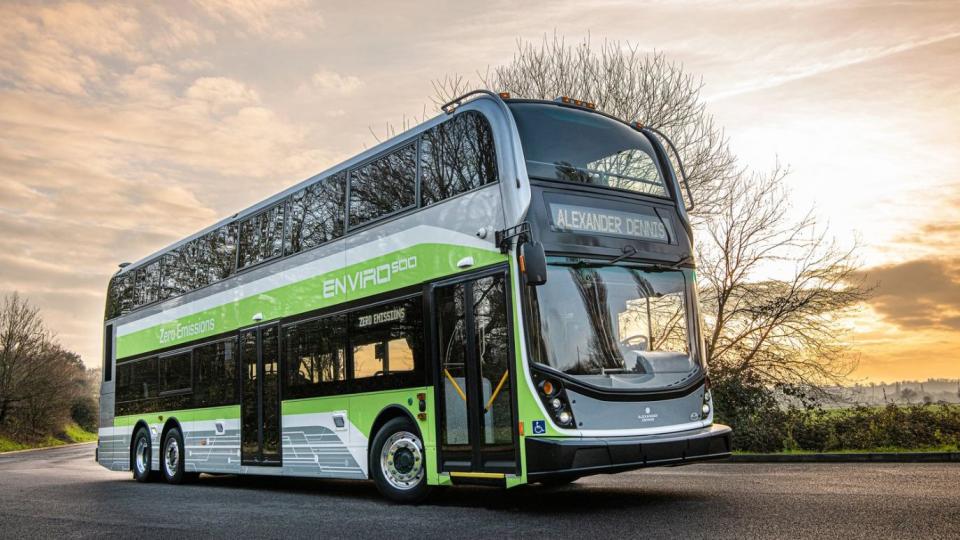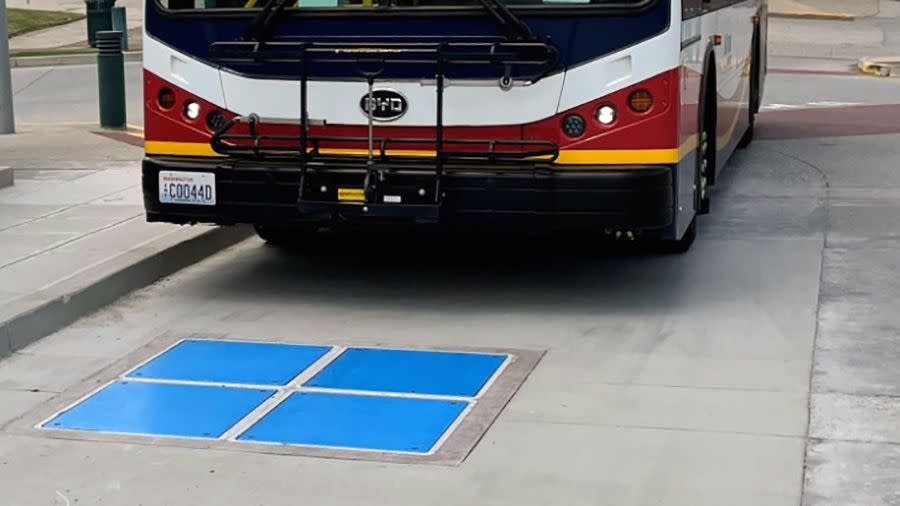Seattle Asks, Will All EV Buses Eventually Charge This Way?

The Seattle area is set to purchase 33 zero-emission Enviro500EV buses produced by Alexander Dennis, featuring an inductive charging system produced by InductEV.
In addition to recharging at their depots, the buses will be able to charge during stops, parking over charging pads installed in the road.
InductEV currently has 35 in-ground charging pads in the state, and a greater number of buses on the way that will be able to use them.
Wireless charging for smartphones has been one of the more useful innovations we've seen in cars over the past decade, especially because automakers could rarely locate good places to put USB ports.
But scaled up a little further, inductive charging at one point also seemed like a promising way to charge passenger EVs, even though consumers have lately been demanding ever-faster DC fast-charging, requiring ever more resilient (and expensive) charging infrastructure.
Scaled up a bit further, and wireless inductive charging also promises to be a viable alternative to trolley buses or even battery-electric buses that recharge via regular connectors or pantographs, by using a pad built into the road surface.
Puget Sound is set to be the first region in the US to receive electric buses that will rely on wireless charging technology, in what is claimed to be an industry-first for double-decker buses in North America.
The Seattle-area Sound Transit has made plans to purchase 33 zero-emission Enviro500EV buses made by Alexander Dennis that will feature Voith Electrical Drive Systems coupled with inductive charging tech by Pennsylvania-based InductEV.
The buses themselves will be able to recharge at their bases the old-fashioned way as well, but the 300-kW inductive charging pads will give their battery a serious boost over the course of their routes.
"The order was placed after we completed extensive route mapping exercises in conjunction with Sound Transit, using automotive-grade modeling to fully understand the operational requirements," said Stephen Walsh, Vice President for Alexander Dennis in North America.
The buses themselves will serve a new route dubbed Stride bus rapid transit (BRT), which will connect communities along Interstate 405 located north, east, and south of Lake Washington.

InductEV's wireless charging tech actually debuted in the state of Washington all the way back in 2017, in Wenatchee.
"Daytime on-route wireless charging also enhances the use of renewable energy for electricity versus in-depot wired charging at night," InductEV says. "Sound Transit will charge its buses on-route and in depots, since nearly half of the electricity in the Puget Sound region comes from renewables."
The hope is that given enough of these charging pads, buses won't have to rely on depot-based infrastructure at all at night or in between shifts. So instead of one wired charging session, buses will be able to rely on a series of smaller wireless charging sessions. At least when there will be enough of these.
InductEV currently has 35 in-ground charging pads in the state of Washington, and compatible hardware already installed or scheduled to be added to 100 electric buses.
"InductEV's technology avoids wired, depot-oriented charging methods that consume considerable real estate and electric utility assets, while allowing smooth, high-powered wireless charging interoperability for both double-decker and 60-foot articulated electric buses on BRT high-end commuter routes," the company says.
However, for this type of charging to catch on in the US, electric buses themselves have to catch on first. This appears to be a bigger hurdle at the moment, with relatively little progress to be seen nationwide outside of a few EV-friendly regions.
Washington state, we should note, is set to end the sales of internal-combustion cars and light trucks far sooner than others, in 2030. So it's already ahead of the curve.
Will electric buses achieve even 50% market share nationwide by 2040, or will this process take longer? Let us know what you think.

 Yahoo Autos
Yahoo Autos